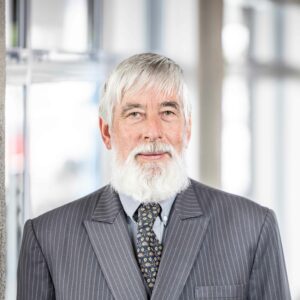Mark Armstrong attended the recent Presidential Address by Sir John Armitt to the Auckland Branch of the Institution of Civil Engineers (ICE).
With over 13,500 members living and working throughout Asia Pacific, and 25 volunteer representatives working in 17 countries in the region, as well as many local committees, ICE is an important organisation for enabling engineers to learn from one another and debate and promote ideas and best practice throughout the world.
A key theme of Sir John’s presentation was his passion for ICE to be relevant in society, especially to the broader engineering disciplines, and to embrace change. He hoped to empower the membership to be relevant and to provide value and innovation, within both the ICE and society. He cited the ICE’s current public awareness campaign, ‘This is Civil Engineering,’ designed to raise the public profile of civil engineering and the benefits of infrastructure to the local community at a time when there is a shortfall of engineers.
Sir John reflected that engineers were at their best when under pressure, delivering innovation and benefits to clients and society. He referenced the London Olympic delivery between 2007 and 2012, where initial cost estimates had led to many assets being completely redesigned, driving efficiencies, savings and environmental benefits to the games.
He also discussed the unknown market reaction to Brexit, and its effect on political policy and future funding. He asked what role the ICE would play in the future and asked that members be dynamic, flexible and adaptable in the coming years of uncertainty. The management of a country’s infrastructure is a key role where the ICE can bring large value. On its own initiative, the ICE will be publishing a report on the state of British assets in October this year. This document will be used to guide future political requirements in infrastructure.
Sir John wanted the membership to realise that as university costs rise and places reduce, not all future charted civil engineers will come via university; many will be promoted from within. The ICE needs to recognise this and respond accordingly, allowing ability to be nurtured and recognised. He also wanted the ICE to embrace other engineering disciplines and forge a better understanding and stronger ties, enabling lessons learned to be used and understood.
He concluded that engineering needed skills at all levels, that civil engineers needed to keep questioning the “why” in their everyday professional roles, and that the ICE and its members needed to remain dynamic, flexible and adaptable to meet the needs of the modern engineering world.




